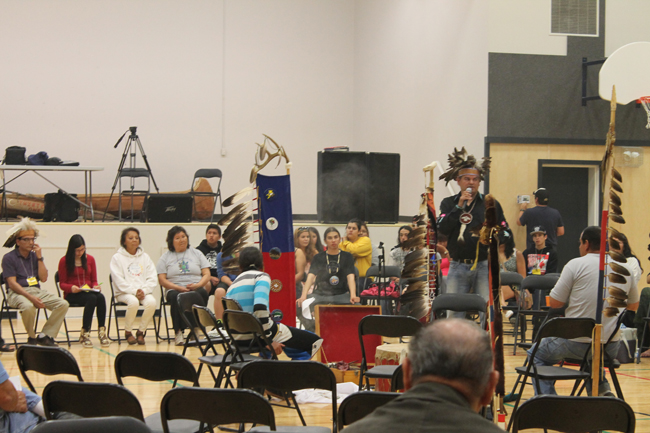Serpent River First Nation challenges subdivision

SERPENT RIVER FIRST NATION – Chief Isadore Day says that his community and the City of Elliot Lake are in talks with the province of Ontario after taking legal action last year regarding
improper consultation with the archaeological fieldwork on Spine Road in Elliot Lake.
Spine Road has cultural significance to Serpent River First Nation. The central legal issue facing the parties is whether Elliot Lake or Ontario had a duty to consult Serpent River First Nation over a proposed subdivision development near the city’s hospital. Elliot Lake approved the development on December 13, 2010, but failed to consult Serpent River on issues that would directly impact the community.
“The land in question contains a high degree of cultural value to our First Nation,” said Chief Isadore Day. “Its location historically was inhabited by our people pre and post‐contact.”Chief Day says that at first, Serpent River wasn’t concerned about the development – relying on the law which governs the “Duty to consult and accommodate”.
“This did not happen,” said Chief Day. “An archeologist hired by the land owner and developer determined features on the land were characteristic of mounds. The city declared that the mounds had a potential of containing a burial site and confined their findings to a single lot – stating that there were no other potential values on any other part of the proposed development.”Elliot Lake approved the draft plan subdivision – without input from the First Nation and failed to notify the First Nation of their decision.
“Serpent River First Nation only expects to be granted what is due – a fair approach to consultation,” said Chief Day. “The lack of accommodating our interests in this process has proven to be a major issue placing an unnecessary burden on our community. What strikes deeply here for us is the lack of respect and understanding for our customs and history as well as the disregard for constitutionally protected Aboriginal and treaty rights. Perhaps it’s time to apply the full extent of the law – our requests have certainly not been heard.”
According to the United Nations Declaration on the Rights of Indigenous Peoples to which Canada is signatory, Indigenous peoples have the right to participate in decision‐making in matters which would affect their rights.


